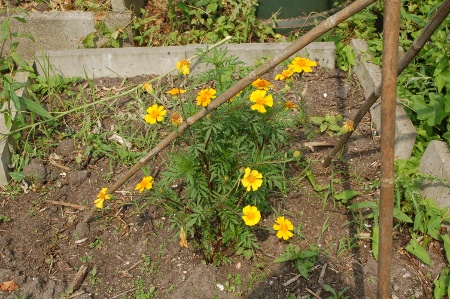I’ve just come across this great collection of audio interviews with Carol Deppe. They go along well with her books if you’ve read them, and her seed list I posted yesterday.
Growing Food at Home Survey
I have a local friend who wants to market a product to assist in growing your own food at home. Do you grow your own food, or are you interested in getting started growing your own food? He would appreciate hearing what you think! You can do the survey anonymously if you like, or leave your email at the end for further contact.
Seedy Penpals
Mel and her friend Carl Legge are organizing Seedy Penpals. The basic idea is to match you up with someone for a seed exchange. The details are laid out here. Importantly, this is mostly for people in Europe, but if you live other places she might be able to put you in touch with something similar happening locally. I think she’d like to hear about similar initiatives in other places, so she can find ways of cooperating.
One of the best things about this is Mel is in Amsterdam! Woohoo — another garden blogger in Amsterdam! That makes two of us. Amsterdam doesn’t seem like such a lonely place anymore.
Actually Mel has been around a while, I just never noticed her before. It’s not like we’re welcoming a new blogger, but I still hope you stop by and say hi to her and Carl anyway.
Thomas Etty Esq, UK
I like to mention and support all small, independently run seed companies. Unfortunately, there are just too many to keep on top of. From time to time these places send me emails, and this can prompt me to remember and mention them. Sometimes these emails come at a busy time, and get overlooked.
This is sort of what’s happened here. I’ve been meaning to mention Thomas Etty Esq for a long time now, and he’s sent me a couple of emails telling me about himself or announcing catalogue releases and so. Finally, here’s a post!
They are a small seed company specializing in heritage vegetables and flowers. They are politically active in the UK, and for example can often be found at events like Seedy Sunday in Brighton. They have lots of historical information on their website, and their catalogue and mailings are always a pleasure to read. They ship orders across the EU. If you’re in the EU, when choosing seeds and bulbs for next year’s garden, be sure to have a look at their catalogue.
Biodiversity, Flowers and Vegetable Gardens
I’ve been interested for a while in finding ways to make use of flowers to increase the biodiversity in my vegetable garden. To be honest, I’m a complete novice when it comes to flowers, and I don’t really have an interest in them unless they serve some clear purpose.
Some years ago, when the Seed Ambassadors visited Europe, I got some of Alan Kapuler’s tagetes seeds from them. As I recall, there weren’t many seeds left by the time it was my turn to take some, and of the few seeds I got only one or two germinated. I don’t remember what happened to those…
Alan Kapuler is known for tagetes. When placing an order with him a few years ago for some other things, I also ordered some more of these too. They’ve been sitting around, and now this year I had a couple of goals to accomplish.
- The first was to provide some flowers suitable for bees and other pollinators to collect pollen, and for this I chose borage.
- I also have some perennial weed issues in my garden, and I was hoping to address this by somehow solving underlying problems, or with companion planting or biodiversity.
Last year I had some bindweed in my garden, slowly encroaching on a neighbor’s garden. With some apologies, I explained the situation to her and said I would do what I could, but expected some of it would come into her garden anyway. Without saying a word to me, she planted some Tagetes minuta, a wild plant in our area, along our fence. The result was quite impressive. All the bindweed within about a meter of the fence died.
I’ve since read some things about using tagetes to kill bindweed, but to be honest the information available is a little conflicting and vague. Some sources say particular species of tagetes are more effective than others. Almost all sources mention that no benefit is achieved until the plant has been growing in the same place for at least 3 months. Anyway, it seemed a good year to grow some of Alan Kapuler’s varieties and put them to the test. He offers T. patula and T. erecta. Several of them were planted in places very infested with bindweed.
T. patula
T. erecta
Borage
The tagetes haven’t been in place for a full 3 months yet, so it’s probably a little early for conclusions, but not much seems to be happening yet. I did notice none of the tagetes are becoming engulfed in the bindweed, as if the bindweed instinctively knows not to grow near them.
Does anyone have any experience with tagetes and bindweed or tagetes and anything else?
Does anyone have other suggestions or ideas for combining flowers and vegetable gardens, for purposes of making use of biodiversity?









